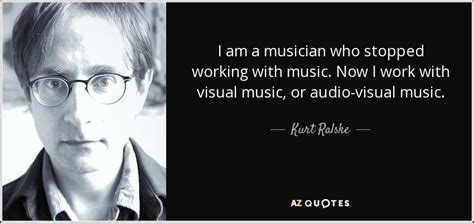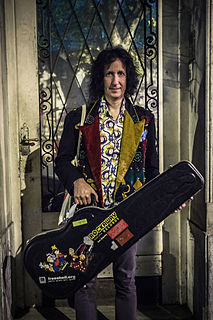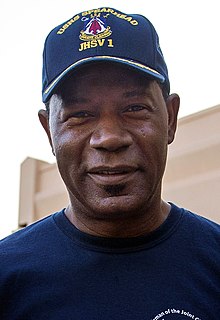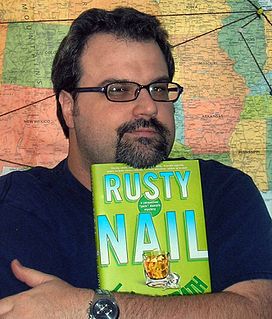A Quote by Brian Eno
I got an amazing 10-CD set, it's the music that Alan Lomax recorded in Haiti in 1936. And what's incredible is how fantastic the drummers are and how off-the-grid they are. The liveliness is astonishing; they're just totally alive, these recordings. It's very interesting, to me, to be reminded of that, that there was a time when things were not that tight.
Related Quotes
There's a lot of music nowadays with people singing about how amazing their clothes are and how incredible their shoes are and how much jewelry they might be wearing or how much jewelry they want, how much money they have and the club that they're in and the alcohol that they're drinking. I think that's showing off. I don't think it's necessarily all that honest or all that interesting.
Some people who make music are instantly very savvy about how they can get their music to communicate in a larger way. For me, the music was always first, and I put a lot of time and effort and thought into making the recordings. But everything else around it, all the things that were necessary to have a career in pop music, I was completely ill equipped to handle.
Music is very personal. It is not objective. We're not talking about how tight they were. How famous they are. How rich they are. For me it's like food. You taste it, and you either love it, or you think it's boring, or it tastes bad, which is three reactions I have with music, just like food, it's very personal.
We got off at the next exit, quietly, and, switching drivers, we walked in front of the car. We met and I held him, my hands balled into tight fists around his shoulders, and he wrapped his short arms around me and squeezed tight, so that I felt the heaves of his chest as we realized over and over again that we were still alive. I realized it in waves and we held on to each other crying and I thought, 'God we must look so lame,' but it doesn't matter when you have just now realized, all the time later, that you are still alive.
All of my friends are really good dancers, which was initially why I never danced - we'd go out and they would kill it and I'd be like, "Yeah, I'm just gonna sit at the bar." I broke my foot, and I couldn't run for a year, but I realized I could kind of dance. It reminded me how amazing dance is; it's so in tune with music - it is music. It's a physical expression of whatever music is. On stage, you're interacting with things - physical things. So I've really started to like and notice the way people move with music.
There is this split between the Haiti of before the earthquake and the Haiti of after the earthquake. So when I'm writing anything set in Haiti now, whether fiction or nonfiction, always in the back of my mind is how people, including some of my own family members, have been affected not just by history and by the present but also by the earthquake.
The tax incentives are things the music business can emulate. If I own Yesterday by the Beatles and I go to a bank and try to borrow $10,000 and use that song as collateral, they wouldn't know what to do. They would run me out of the bank. Whereas if we get specialized people who know how to appraise the value of intellectual property like songs, catalogs and master recordings, they know how to put some type of value on it. They have this in Nashville and Los Angeles. New Orleans is just starting to get it.
It's funny. When we were alive we spent much of our time staring up at the cosmos and wondering what was out there. We were obsessed with the moon and whether we could one day visit it. The day we finally walked on it was celebrated worldwide as perhaps man's greatest achievement. But it was while we were there, gathering rocks from the moon's desolate landscape, that we looked up and caught a glimpse of just how incredible our own planet was. Its singular astonishing beauty. We called her Mother Earth. Because she gave birth to us, and then we sucked her dry.
How did you fastforward and turn it off? (Danger) I wanted it off and off it went. (Alexion) Wow, that’s amazing. I guess this makes me the luckiest woman in the world. (Danger) How so? (Alexion) I’ve found the only man alive who won’t ever shout out, ‘honey, where’s the remote?’ then tear my house apart in pursuit of it. (Danger)
What happened on "As Cool As I Am" was, you know how in the `90s, "the personal is political, the political is personal"? That was a really big thing. Choices you made about how you recorded and what instruments you used and how much real versus how much synthetic. Those were choices that were seen as very political at the time.
Obviously I want my music on the radio and I want my record to do well, but I also have a totally different career, so a lot of people who are in music are just in music and can dedicate all their time to that and I can't do that, so I really want to have both things and I'm just trying to figure out how.



































